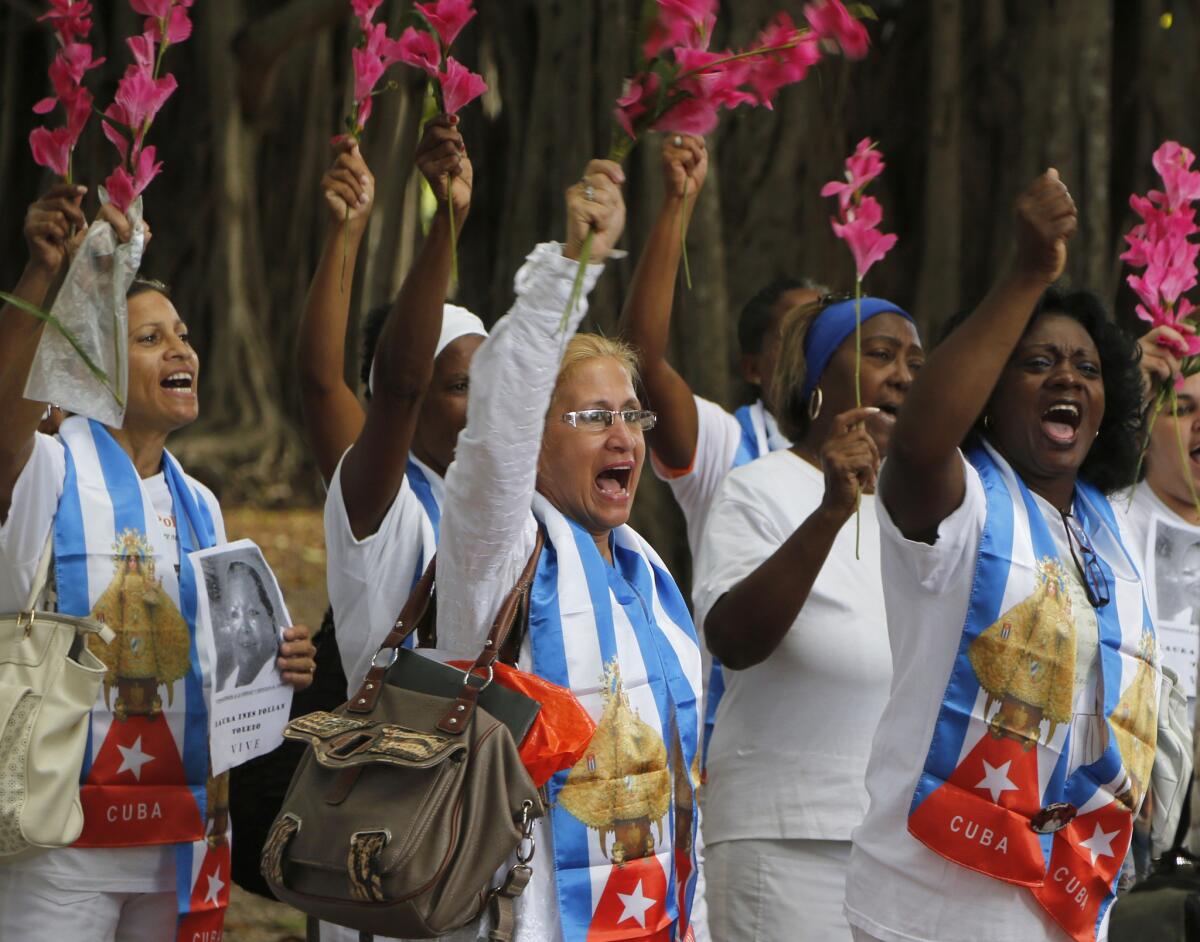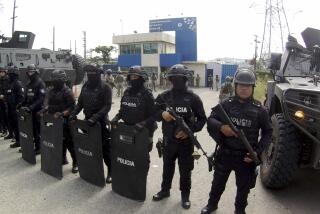U.S. government urges Cuba to respect rights of dissenters

U.S. officials have condemned Cuba’s “continued harassment” of dissidents and human rights activists after police prevented a Havana demonstration intended to test whether purportedly improving U.S.-Cuba relations herald greater freedom of expression.
Apparently, they don’t.
Police in Havana detained several leading activists Tuesday before the afternoon open-microphone event organized by emigre performance artist Tania Bruguera to discuss free-speech rights under the rubric of “I also demand.”
The unauthorized gathering at Plaza de la Revolucion, Havana’s center stage for government-sanctioned parades and demonstrations, never took place because those dissidents and activists known to authorities were intercepted by police at their homes or en route to the venue, news agencies in the Cuban capital reported.
Prominent Cuban blogger Yoani Sanchez said via Twitter that she was under house arrest and that her husband, Reinaldo Escobar, and fellow dissident Eliezer Avila had been taken away by police.
Critics of Havana’s communist government have reacted warily to the Dec. 17 announcement by President Obama and Cuban leader Raul Castro that their countries had committed to opening a new chapter in relations after more than half a century of animosity.
Obama and U.S. diplomats have since reiterated that they remain vigilant over the rights of Cubans to freely express themselves and gather peacefully to air their views. Castro has since stated that Cuba will remain true to its communist principles in spite of the hoped-for reconciliation with its capitalist neighbor.
The Obama administration issued a statement late Tuesday expressing its dismay over the blocked gathering in Havana.
“We are deeply concerned about the latest reports of detentions and arrests by Cuban authorities of peaceful civil society members and activists,” reads the statement signed by State Department public affairs director Jeff Rathke, naming activists Luis Quintana Rodriguez, Antonio Rodiles, Danilo Maldonado, Marcelino Abreu Bonora, Avila and Escobar as would-be participants who were detained before the rally.
“We strongly condemn the Cuban government’s continued harassment and repeated use of arbitrary detention, at times with violence, to silence critics, disrupt peaceful assembly and freedom expression, and intimidate citizens,” Rathke said.
Roberta Jacobson, the assistant secretary of State for Western Hemisphere affairs who is expected to travel to Havana in January to begin the process of normalizing relations, said via Twitter that “freedom of expression remains core of U.S. policy on Cuba. We support activists exercising those rights and condemn today’s detentions.”
The pledge two weeks ago to thaw the freeze in relations between the countries since the 1959 revolution that brought Fidel Castro to power was accompanied by a swap of high-profile prisoners to underscore both sides’ commitment to rapprochement.
But the subsequent assertions that Washington and Havana will retain their long-standing and contrary postures on human rights and the thwarted demonstration Tuesday appeared to signal that any new engagement will, at least in the near term, occur without transformation of Cuba’s one-party rule.
Obama’s effort to mend ties with Havana has been harshly criticized by virulent anti-Castro exiles in the United States as a capitulation to a government that has stifled opposition and human rights for decades.
Follow @cjwilliamslat for the latest international news 24/7
More to Read
Sign up for Essential California
The most important California stories and recommendations in your inbox every morning.
You may occasionally receive promotional content from the Los Angeles Times.











